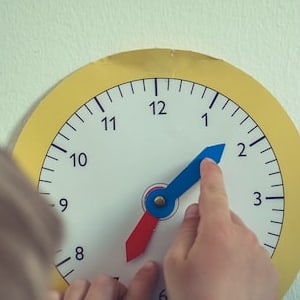little pitcher: Idiom Meaning and Origin
What does ‘little pitcher’ mean?
The idiom "little pitcher" refers to a young child who unintentionally overhears or understands more than they are meant to. It highlights the innocence and naivety of children, who are often underestimated by adults.

Idiom Explorer
The idiom "small fry" refers to someone or something of little importance or significance. It can also be used to describe young children or small details that are not worth much attention.
"One-note" as an idiom refers to someone or something that is limited in their abilities or characteristics, lacking variety or depth. It implies a lack of range or flexibility, often used to describe a person who has a single focus or interest.
The idiom "one-hit wonder" refers to a person or thing that experiences a brief period of success or fame, particularly in the music industry, but is unable to repeat or sustain that success in the long term.
The idiom "once in a while" means occasionally or infrequently.
The idiom "old wine in a new bottle" means presenting something familiar or unchanged in a new or different way.
The idiom "old head on young shoulders" means that a person is wise, mature, or responsible beyond their years.
The idiom "nugget of truth" refers to a small but significant piece of information or fact that is valuable and accurate.
The idiom "not much of anything" means a lack of substance, value, or importance. It implies that there is very little or almost nothing in terms of quantity, quality, or significance.
The idiom "new wine in an old bottle" means presenting something new or different in a familiar or old-fashioned way.
The idiom "new kid on the block" refers to a person or thing that is new or inexperienced in a particular area or group. It implies that this newcomer may face challenges fitting in or proving themselves to established members.
Mysterious origins of 'Little Pitcher'
"Little pitcher" is a commonly used idiom in American English that refers to a young child unintentionally revealing information or repeating something they overheard. The origins of this expression are unclear, but it has been in use for centuries and is still used in everyday conversation.
The phrase "little pitcher" is believed to have originated from the older saying "little pitchers have big ears," which dates back to at least the 16th century. This expression may have been influenced by the use of pitchers to gather water, as they were common household items in the past. It is possible that the phrase was used to caution adults about being careful with their words in front of children, who might unknowingly repeat sensitive or inappropriate information.
The idiom "little pitcher" is often used figuratively to describe any situation where a young child unknowingly reveals something they have heard or observed. This can happen in casual conversations, family settings, or even in more formal situations. The phrase is well understood by native speakers in the United States and has become ingrained in the English language.
While the literal image of a small pitcher may not make immediate sense in the context of the idiom, the metaphorical meaning has evolved over time. The idea that "little pitchers" are capable of gathering information, akin to a real pitcher holding water, emphasizes the innocence and naivety of young children. Additionally, the association of a small container with the act of unwittingly revealing information may contribute to the idiom's usage.
It is important to note that the idiom "little pitcher" is not limited to any specific region or social group within the United States. It is a well-known and widely used expression that can be found in various contexts across the country. Furthermore, while the phrase typically refers to young children, it can also be used metaphorically to describe a person of any age unintentionally revealing something they have overheard.
"Little pitcher" has a long history and is deeply ingrained in the English language. Its origins can be traced back to at least the 16th century, and it continues to be used in modern conversation. The idiom's enduring popularity suggests that it resonates with people and captures a universal truth about human communication. Through the image of a small container unintentionally revealing its contents, "little pitcher" invites reflection on the power of innocence and the inadvertent disclosure of information.
The idiom "little pitcher" is related to several other idioms that capture various aspects of the concept. One such idiom is "small fry." This expression refers to something or someone of little importance, often used to describe children who are not seen as significant or influential. While "little pitcher" focuses on unintentional disclosure, "small fry" highlights the idea of insignificance or low status.
Another related idiom is "little head." This expression is used to refer to someone who is young or inexperienced. Like "little pitcher," it suggests a lack of knowledge or understanding. The phrase "little head" can be used to describe a child who may unknowingly reveal information due to their limited understanding of the situation.
The idiom "little emperor" is also related to "little pitcher." It is used to describe a child who is overly indulged or spoiled, often by their parents. While "little pitcher" emphasizes innocence and naivety, "little emperor" focuses on the negative aspects of a child's behavior, such as entitlement or arrogance.
"light bucket" is another related idiom that connects to the concept of "little pitcher." This expression refers to someone who is easily forgetful or has a poor memory. In the context of "little pitcher," it can highlight the idea that a young child might unintentionally disclose information simply because they may not remember that it was meant to be kept private.
The idiom "one-note" is also relevant to the discussion of "little pitcher." This phrase is used to describe something or someone who is predictable or uninteresting. In the context of "little pitcher," it could suggest that a child's unintentional disclosure may not be surprising or impactful, as their limited knowledge or understanding might make their revelations simplistic or straightforward.
Example usage
Examples:
1. When the little pitcher overheard his parents talking about a surprise party, he couldn't help but spill the beans to his sister.
2. The little pitcher tried to explain to his friends that they shouldn't tease the new student, but they ignored his advice.
3. Despite his young age, the little pitcher showed great determination and practiced every day to become a skilled baseball player.
More "Kitchen" idioms



